
“For everyone lost in the endlessly multiplicating realities of the modern world, remember: Philip K. Dick got there first.”
— Terry Gilliam
Today considered one of the most favored and influential American sci-fi writers of all time, Philip K. Dick (1928-1982) has, since his death, been the focal point of a rare and deserved reappraisal. Once deigned a hack scribe of trashy pulp paperbacks, he has net critical veneration, an academic cult following, and largely taken popular cinema by storm.
Author of over 44 novels and some 150 or so short stories, PKD has become Poet Laureate of fake experiences and false memories, creating imaginative worlds with exhaustive cosmologies where reality is always subject for revision. Novels like “Ubik”, “VALIS”, and “The Three Stigmata of Palmer Eldritch” (a favorite of John Lennon’s, he wanted to produce a film adaptation for years), are rightly regarded as modern literary classics.
Dick’s sarcastic piss-take on the American Dream, and his colorful Cold War rhetoric made him more than a genre writer of science fiction but also a satirist, a social commentator, a political writer, and a magical-realist as well. “I’m a fictionalizing philosopher, not a novelist,” Dick used to say, placing him in league with contemporaries like Kurt Vonnegut, Italo Calvino, and Jorge Luis Borges.
Numerous movie adaptations of Dick’s works exist, some revered, and some not so much. That he died near destitute, mere months before the release of Ridley Scott’s Blade Runner is a cruel irony, and that his abbreviated life was as wild and outlandish as his writing seems a similar twist. A mad visionary, PKD may have met God or lost his marbles (see his staggering VALIS trilogy and draw your own deductions), but most importantly, his incessant imagination and search for the truth led many down rabbit holes and dream worlds both vast and vivid.
His award-winning 1962 novel, “The Man in the High Castle”, which posits an alternate history where the Axis powers won World War II, is currently a hit TV series for Amazon, Channel 4 in the UK has premiered the new anthology TV series Philip K. Dick’s Electric Dreams, and French-Canadian firebrand Denis (Sicario, Arrival) Villeneuve’s sequel, Blade Runner 2049 is receiving much deserved critical praise, and is sure to gather more accolades once awards season rolls around.
With so much of his cannon still to be adapted and with his distinguishable and non-stop influence continuing to cause encouragement and endless motivation, what crazy avenues of unreality and fantastical thoroughfares will Dick and his adherents drive us down next? If he’s the madman at the wheel, be sure to buckle up.
20. Radio Free Albemuth (2014)
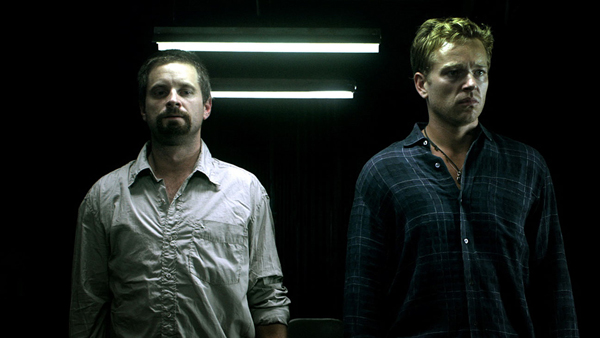
A fans-only affair, writer/director/producer John Alan Simon’s ambitious Dick derivative is kneecapped by a modest budget and other B-movie embellishments. Adapted from a posthumously published novel from 1976, Radio Free Albemuth is a semi-autobiographical paranoid political thriller, it also marked Dick’s first attempt to decode, in fiction, his interactions with VALIS.
In PKD lore, VALIS (an acronym for Vast Alien Living Intelligence System), was the name he ascribed to a series of bizarre visions and experiences he underwent in February and March, 1974 (also referred to as “2-3-74”), tinged with gnostic symbolism, that may have been Dick’s interaction with an alien or godlike intelligence, and was the subject of his final string of novels as well as his highly detailed tome, The Exegesis.
Simon’s take on Radio Free Albemuth is a mixed bag; Shea Whigham is great as a PKD Photostat, believable as the freaked out science fiction writer potentially losing his mind. Far from great is Alanis Morissette’s Sylvia, the subversive singing dream girl with no chemistry whatsoever with any of her fellow cast.
It’s hard to believe that Morissette was a child actress on Canadian television before her music career took off, and here she stinks at both specialties. Worse than that are the so-so to terrible special effects that won’t win anyone over who doesn’t already admire the source material. PKD admirers will probably forgive the film’s many shortcomings and find more than a few self-indulgences, but for everyone else, read the book, it’s a blast.
19. Next (2007)

Not as terrible as it’s mid-career-slump Nic Cage suggests, and despite middling-to-poor reviews from the critics, Lee Tamahori’s Next is a fun, fast-paced time warp song and dance. Based on Dicks’s 1954 short story, The Golden Man, Next stars Cage as Cris Johnson, a Las Vegas magician with the eerie ability to see two minutes into the future — a skill handy in Vegas, where he hits up casinos to supplement his income — and the odd precognitive dream, interpretations of which haunt him with uncertainty.
As you’d expect with so silly, albeit amusing, a premise, Cris spends much of the film narrowly avoiding things, including FBI Agent Callie Ferris (Julianne Moore), who wants Cris to help the bureau prevent a nuclear bomb plot involving Eurotrash terrorists. Jessica Biel is thrown in the mix, too, as a thankless love interest, and a cameo by Peter Falk elevates one particular scene surprisingly well.
PKD fans, as ever, will find more than a few pleasures in Next, least of all being a surprisingly well-constructed action sequence at its climax, despite the fact that the film strays far off course of the original story. While it is rather sad to see that Tamahori, whose breakthrough film from 1994, Once Were Warriors, has never been equaled since his arrival in Hollywood, Next, it’s fair to say, is his most gratifying outing since. A minor film in the Dick delectus, Next has some fist-pumping pleasures despite many stumbles.
18. Paycheck (2003)
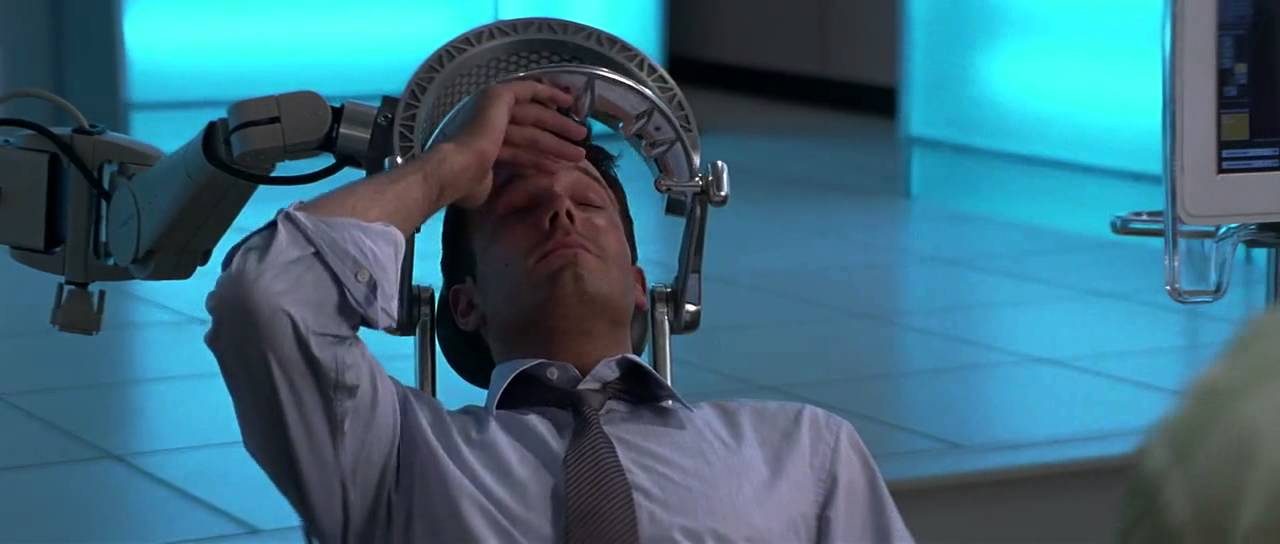
John Woo, who’s impressive, highly-stylized Hong Kong action films like The Killer and Hard-Boiled offered audiences balletic action sequences of orgiastic violent subversion, never quite translated into satisfying cinema once Woo came to North America, and Paycheck confirms this. Still, it offers some guilty pleasures, a few ham-fisted surprises, and several of Woo’s trademark flourishes — slow motion doves anyone? — all adding up to an ofttimes enjoyable sci-fi actioner.
Ben Affleck phones it in as Michael Jennings, a reverse engineer who routinely has his memories wiped to protect the high-price clients who enlist him on top secret electronics projects. Based on the innovative paranoia-addled 1952 short story, Paycheck touches upon the Kafka-esque prerogative so often present in Dick’s work, but with Woo’s ornamentation, there’s an emphasis on camera movement, stunt sequences and posturing, at the cost of plot and character development.
The extended automobile/motorcycle/helicopter bird-dog is an artful distraction and the film’s centerpiece, but may also be where Dickhead and Woo worshippers digress. All told, Paycheck is a decent enough adaptation but offers only a modest reward.
17. Impostor (2001)
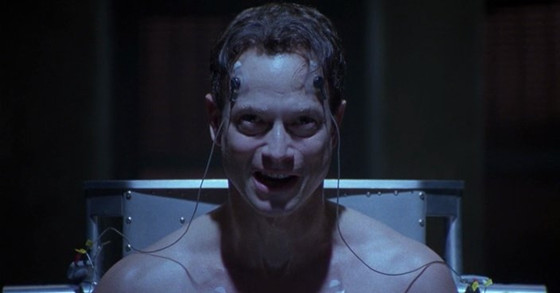
In the year 2079 earth exists inside a force shield dome, having been warring with hostile aliens from Alpha Centauri for nearly 50 years. Scientist Spencer Olham (Gary Sinise) is a top secret defence weapons designer, happily married to Dr, Maya Olham (Madeleine Stowe), and the essential overly suspicious PKD ingredients from his 1950 short story are emblazoned in full. Spencer, we soon discover, may be an alien replicant with transplanted memories, who, in Manchurian Candidate fashion, could be a weapon used against humanity at incredible cost.
Director Gary Fleder (Kiss the Girls) smartly stabilizes a Machiavellian smoke-filled room scenario via Vincent D’Onofrio’s Earth Security Administrator, Major Hathaway, and Spencer, in postmodern Jacobean tradition, may or may not be the eponymous impostor we fear him to be.
Originally intended as a short film, part of a feature length triptych, Impostor relies wearily on an extended run-and-hide formula, a shame since Sinise gives a devoted and responsive performance. It’s not a disastrous adaptation by any means, but it is the cinematic equivalent of fast food; lots of empty calories in an oversized portion, offering mostly superficial sustenance.
16. Total Recall (2012)
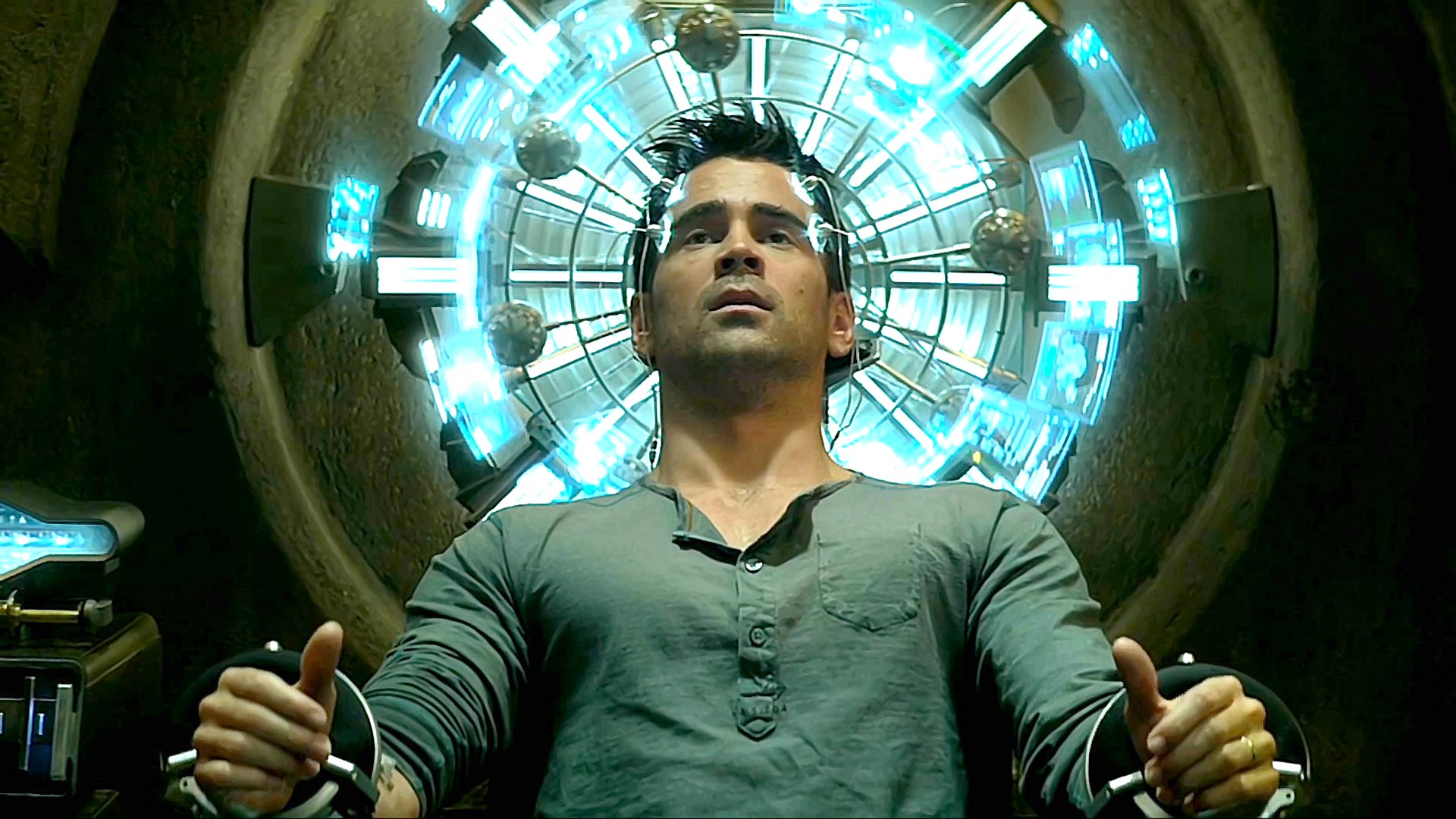
For the second adaptation of the 1966 short story We Can Remember It For You Wholesale, director Len Wiseman (Underworld) eschews the camp of Paul Verhoeven’s classic version with largely mixed, though mostly satisfying, results. Colin Farrell is Douglas Quaid, the thickly eyebrowed factory worker of the future, somehow married to knockout Kate Beckinsale, apparently a bore, he dreams of a better life (?!) via Rekall, a company that implants memories into the mind, with no chance of anything going wrong, ever.
The could-have-been-much-wiser Wiseman foolishly allows his Total Recall to jettison the sardonic, wry humor of the original, along with the excessive violence, crafting a PG-13 experience that is only saved by special effects and some startling, and exciting action set pieces.
It’s not a complete waste, in many ways Wiseman’s version is more faithful to the Philip K. Dick source material — though the absence of Mars is regrettable — and the noir ambience elevates the story in interesting ways. There’s rampant use of lens flares, which will probably date the film prematurely, but the futuristic spectacle of hover cars, robots, a gravity elevator that cuts through the earth’s core, and other grand gadgetry is rousing in all the right places.
15. Predestination (2014)
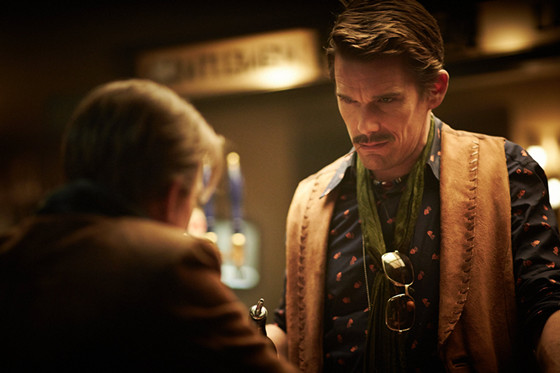
Australian twin brothers Michael and Peter Spierig take Robert A. Heinlein’s 1958 time-travel fixated short story “All You Zombies” and produce one of the most exasperating, touching, and entertaining genre adventures of the decade. True, this is an adaptation of Heinlein, but he and Dick maintained a long-running correspondence with one another during their lives, and often spoke highly of one another while also sharing many similar themes in one another’s writing.
Ethan Hawke is a temporal agent on his last time-traveling charge, which is to stop the ever elusive “Fizzle Bomber” from a terrorist attack that will claim the lives of thousands. And from there I won’t say much more –– the less you know going in, the better –– that will eventually culminate in an affecting, and spectacularly byzantine parable on gender, identity, and divine will.
Sarah Snook also deserves praise for her impassioned, sensitive, and multi-layered performance (she deservedly won an Australian Academy Award for her considerable efforts), which helps sell the occasionally perplexing trajectory that Predestination so boldly tracks.
The shocking twist in this film (no spoilers here), is pure Heinlein, but the temporal paradoxes and the twisting road that takes us there is pure PKD and the cosmologies these two SF giants so frequently shared. Strongly recommended.